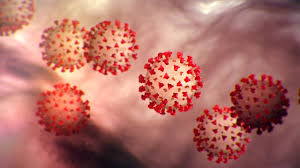What’s happening if you have MS and you’ve tested positive for COVID-19? How will the disease affect your disease-modifying therapies and your MS? How will the DMTs affect COVID-19?
Dr. Barry Singer, (@drbarrysinger), a neurologist who directs The MS Center for Innovations in Care in St. Louis, has posed that question to his Twitter followers. And the responses that Singer has received, from around the world, from people with MS who have been sickened by COVID-19, and from their neurologists is encouraging. Here’s some of what they are saying on Twitter:
‘Flu-like symptoms but doing well’
“In Rome we have one male patient positive to Coronavirus. Treated with Natalizumab [Tysabri] (14 infusions done), actually just fever, under observation but not hospitalized. One positive female on DMF hospitalized due to fever and dyspnoea, good recovery in few days.” Giovanna Borriello (@GiovannaBorri19)
“Case of person with COVID19 on ocrelizumab [Ocrevus] in Australia reported today. Mild infection and doing well.” –AnnekeVdWalt (@anneke_vdw)
“One patient with infection shortly after w1 in year 2 of Cladribine [Mavenclad]. Similar symptoms as others otherwise healthy so far.”
Elisabeth G. Celius (@CeliusElisabeth)
“Have one patient with ocrelizumab infected. Doing fine. Flu-like symptoms but doing well.”
NeuroImmunology Club (@NeuroImmunology)
“I have one 40yo women recently diagnosed with RRMS (had not yet received DMT). High fever, dry cough and shortness of breath due to bilateral neumonia. Grade 4 lymphopenia and elevated C-reactive protein in the blood. Treatment with Kaletra and Dolquine has been initiated.”
Susana Sainz de la Maza (@S_SainzdelaMaza):
“I have one. Bilateral neumonia. 68 yo without treatment since 2 years (previously with Rebif) [inerferon beta-1a]. Discharged well last week after 2 weeks of hospitalization. No need ICU.”
Pablo Nieto (@IlNeuroDoktorMS)
“Case of COVID-19 in patient on Gilenya [fingolimod] Presented cough, fever 38.3. Spontaneously improved after 3 days and today (4th) day almost back to normal. Last lymphocyte count 0.5. We can’t make any conclusions for from a few cases but grateful for some good news.”
AnnekeVdWalt (@anneke_vdw)
Encouraging news
This seems to be good news, especially regarding the patients being treated with Tysabri (natalizumab) and Ocrevus (ocrelizumab), both of which affect the immune system. There have been concerns that people being treated with these and other disease-modifying therapies might be extra-susceptible to infection and this coronavirus. These informal responses indicate this might not be the case.
You might be able to help
Dr. Singer would like to hear from more people with MS who have tested positive for the coronavirus, or from their neurologists, via Twitter using the hashtag #MSCOVID19. He says it’s “important that we share global experience to give advice and make key treatment decisions.”
In the UK, the MS Register is collecting similar information. The goal is to recruit people who are currently well, or have recently had the virus, and then follow them, using on-line questionnaires, over the next few months. That should give doctors a picture of when symptoms start and what their impact is on people with MS. Both PwMS and MS health care professionals in the UK can register at https://ukmsregister.org.
I encourage you to participate in the efforts of the UK MS Registry and Dr. Singer to obtain more knowledge about the coronavirus and COVID-19. Knowledge is power. Currently, some of us have a lot of knowledge and it can provide powerful help to those making treatment decisions.
(A version of this post first appeared on the Multiple Sclerosis News Today website).
(Featured image from Centers for Disease Control)



